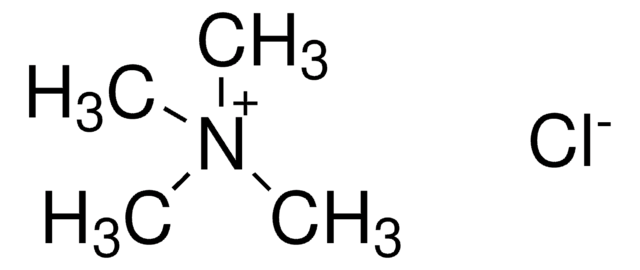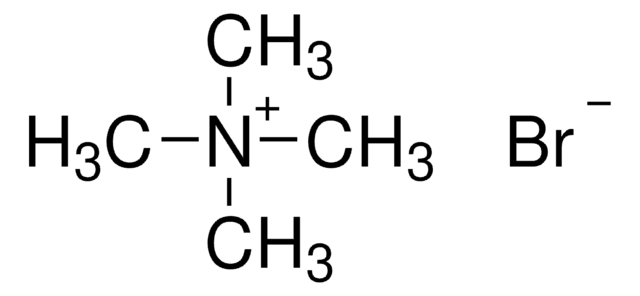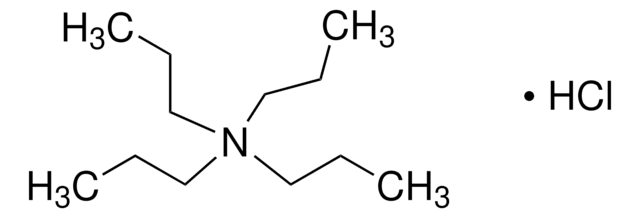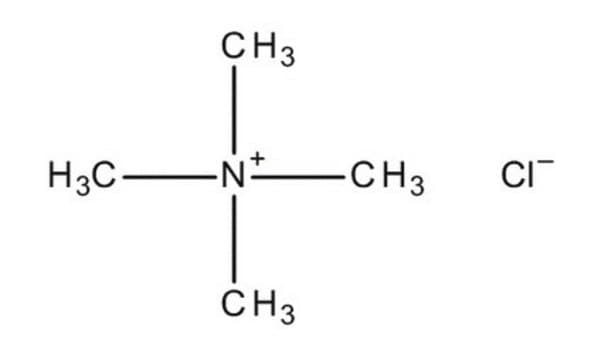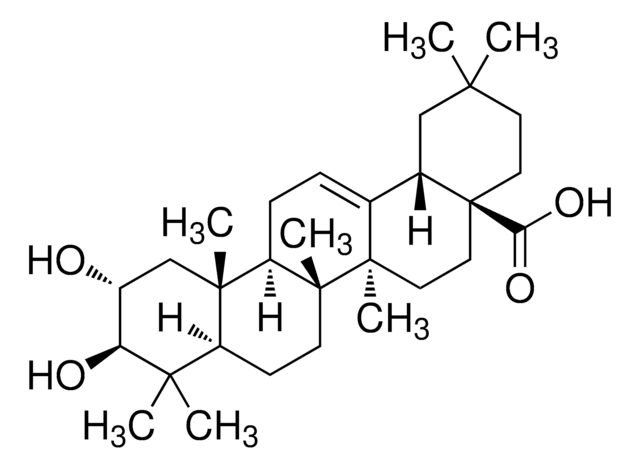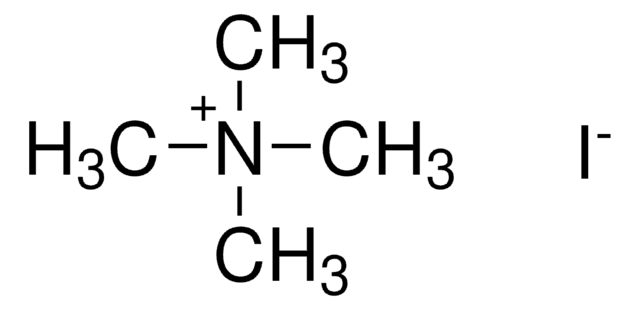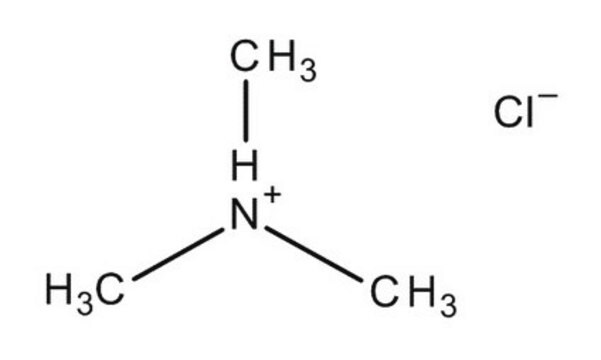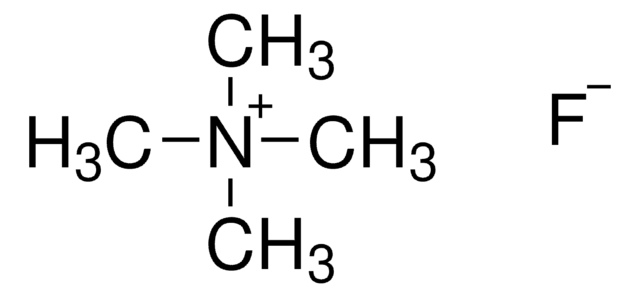T19526
Chlorure de tétraméthylammonium
reagent grade, ≥98%
Synonyme(s) :
TMA
About This Item
Produits recommandés
Qualité
reagent grade
Niveau de qualité
Essai
≥98%
Pf
>300 °C (lit.)
Chaîne SMILES
[Cl-].C[N+](C)(C)C
InChI
1S/C4H12N.ClH/c1-5(2,3)4;/h1-4H3;1H/q+1;/p-1
Clé InChI
OKIZCWYLBDKLSU-UHFFFAOYSA-M
Vous recherchez des produits similaires ? Visite Guide de comparaison des produits
Catégories apparentées
Description générale
Application
Mention d'avertissement
Danger
Mentions de danger
Conseils de prudence
Classification des risques
Acute Tox. 2 Oral - Acute Tox. 3 Dermal - Aquatic Chronic 2 - Skin Irrit. 2 - STOT SE 1 Oral
Organes cibles
Central nervous system
Code de la classe de stockage
6.1A - Combustible, acute toxic Cat. 1 and 2 / very toxic hazardous materials
Classe de danger pour l'eau (WGK)
WGK 1
Équipement de protection individuelle
Eyeshields, Faceshields, Gloves, type P2 (EN 143) respirator cartridges
Faites votre choix parmi les versions les plus récentes :
Déjà en possession de ce produit ?
Retrouvez la documentation relative aux produits que vous avez récemment achetés dans la Bibliothèque de documents.
Les clients ont également consulté
Notre équipe de scientifiques dispose d'une expérience dans tous les secteurs de la recherche, notamment en sciences de la vie, science des matériaux, synthèse chimique, chromatographie, analyse et dans de nombreux autres domaines..
Contacter notre Service technique